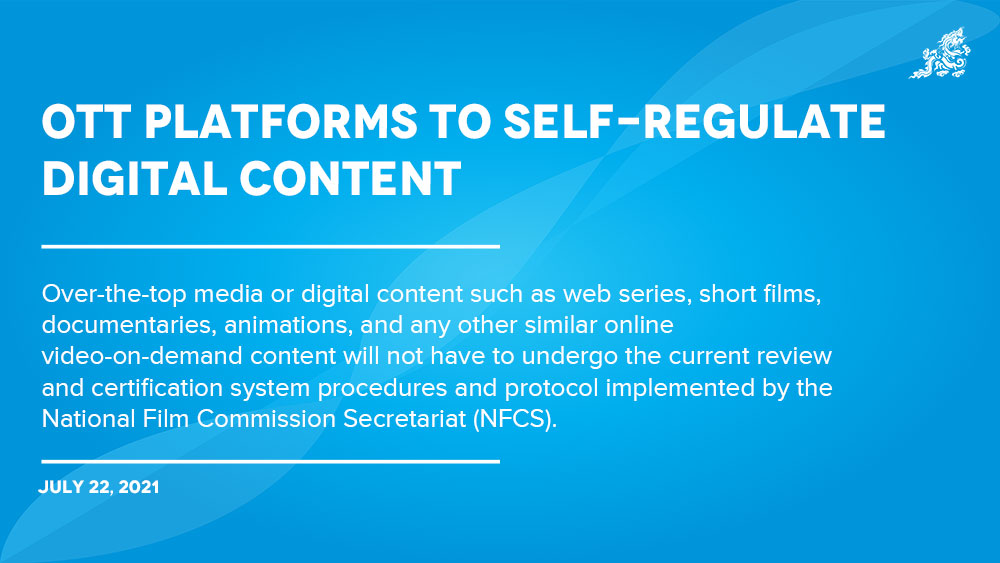Chhimi Dema
Over-the-top media or digital content such as web series, short films, documentaries, animations, and any other similar online video-on-demand content will not have to undergo the current review and certification system procedures and protocol implemented by the National Film Commission Secretariat (NFCS).
This was following a Memorandum of Understanding (MoU) that was signed on Tuesday between NFCS and over-the-top (OTT) platforms–Samuh and Songyala. An over-the-top media service is offered directly to viewers via the internet through OTT platforms.
NFCS’ officiating head, Tenzin Gyeltshen, said that the OTT platforms were beneficial to the film producers because they provided an opportunity to sell their films or tie up with OTT platforms to create content.
He said: “It not only benefits the filmmakers but also youth in the creative industry.”
The cinema halls have been closed since March last year following the first positive case in the country. Kuensel reported earlier that about 20 films were not released and 10 films were not screened in other dzongkhags.
Anywhere in the world, OTT contents are not regulated, Tenzin Gyeltshen said. “The MoU is a freedom with responsibility for the OTT platforms.”
He said that it was challenging for NFCS with a small set-up to review the contents that were continuously created for OTT platforms.
However, the OTT platforms need to apply for filming permits from NFCS and acquire any other required approvals from relevant authorities and agencies.
“The NFCS shall seek the support of the Media Council of Bhutan, the legitimate government agency charged with the responsibility to look after media content, to monitor and evaluate the OTT contents”, stated that MoU.
The OTT platforms were also to institute an internal review system or mechanism to ensure all its contents were made as per the established existing norms, regulations and guidelines.
Tenzin Gyeltshen said that in the existing rules and regulations, there were no rules on how to review or a fee structure for commercial films which includes web series, dramas, short films, among others.
The Rules Governing Examination and Certification of Films defines ‘films’ as a form of moving image production including feature films, drama, documentaries, advertisements and music videos that are meant for commercial and public screening.
Edited by Tshering Palden


